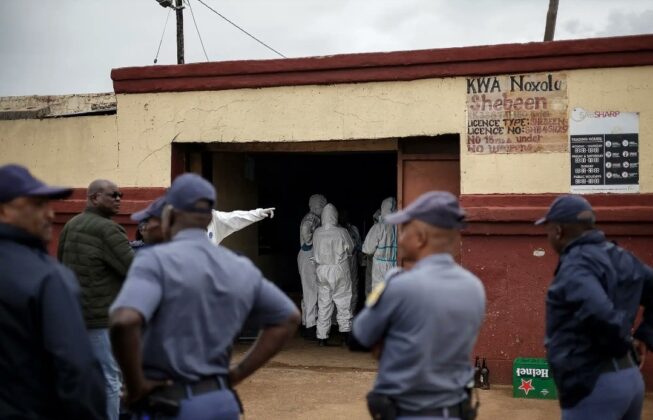
Deputy Higher Education Minister Buti Manamela has announced a R13 billion allocation to NSFAS. Image: GCIS.
(The Post News)– Higher Education Minister Buti Manamela has announced a R13 billion allocation to NSFAS aimed at assisting 34,000 students with blocked registrations and a further 15,000 registering for the second semester.
According to Manamela, NSFAS will issue a circular today to open the registration portal. Student accommodation providers who were impacted will also be in a position to receive payments for services rendered. This marks a significant moment in the stabilisation of NSFAS for the 2025 academic year.
However, the scheme is still at financial risk due to an increasing number of students qualifying for post-school education and training funding, the escalating cost of living, which has expanded the eligibility criteria and declining state resources in real terms. He said they will later in the year announce steps towards the sustainable funding reforms for NSFAS.
Manamela to launch NSFAS 2026 Applications
Manamela added that on Tuesday, 16 September, at the University of Pretoria, they will officially launch the 2026 NSFAS application process. This is the gateway through which hundreds of thousands of young people — especially from working-class and poor households — will be able to realise their dreams of studying at a university or TVET college.
NSFAS remains one of the largest instruments of social justice in post-apartheid South Africa, currently about a million students each year. The process for 2026 has been simplified and strengthened. Applications will be done through the myNSFAS portal, which is accessible via any internet-enabled device, he said.
Manamela said that students will be able to track their applications online, upload supporting documents, and receive real-time updates. To make the process more inclusive, NSFAS will also work with partners such as SASSA, SARS, and the Department of Home Affairs to verify information automatically, reducing paperwork and speeding up approvals. In addition, NSFAS is extending its footprint through localised and regional service centres, so that even those in rural areas can access help close to home.
“We call on all stakeholders; schools, teachers, parents, municipalities, public libraries, NYDA centres, community halls, and even internet cafés; to assist learners in applying before the deadline. For those who intend to study at university, competition for the 235,000 spaces remains very high, so early application is critical. For those choosing TVET colleges, NSFAS will fully cover tuition, registration, and allowances in line with the Heher Commission recommendation — reflecting our determination to shift enrolments towards the technical and vocational sector, which is vital for industrialisation and employment. By working together, we can ensure that no deserving student is left behind,” said Manamela.



